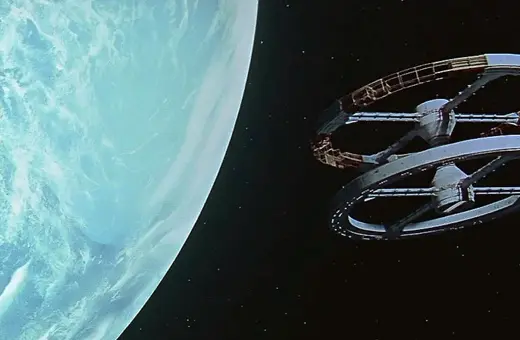We often, especially in the modern age of geopolitical uncertainty, fear the end of the world. But, Slavoj Žižek now argues, the end of the world might already be here. Žižek argues that the end of history is not one of global peace, or even global catastrophe, but an endless repetition of the same. Drawing on what he calls the 'quantum entanglement' of North and South Korea, Žižek argues the end of history is found in a tension between a mobilisation against an emblematic enemy and a relaxed indifference.
Images of the end of the world, imagined and otherwise, pervade our media. Alenka Zupančič noted ironically that one should not expect too much from the end of the world – it may disappoint us. I offer a similar sentiment, only phrased slightly differently: don’t worry, sooner or later the end will come. This reassurance addresses the underlying belief that, if we talk and worry enough about the end of the world, it may not happen. This leads naturally enough to the question: What if the true end of time is not a mega-catastrophe but the endless repetition of the same endless deferred, and endlessly deferred, moment? A moment epitomized by the standard coda to an episode of a TV show, asking us to wait until next week (or in streaming life, simply the next episode) for the narrative to be continued – to quote Alessandro Sbordoni: ‘As the end gets nearer, more is yet to come.’ So maybe we already live (in) the end of the world. An end which stretches on endlessly, with no possible resolution.
Russian-born French philosopher Alexandre Kojève, the great interpreter of Hegel in the 1930s, 1940s and 1950s, saw the ‘end of history’, the highest form of social order, take place first in Stalinist Russia and then in contemporary Japan. A Korean friend, Alex Taek-Gwang Lee, told me that, if Kojève were alive today, he would have chosen South Korea as an example of a place where history had ended, too. Why? It’s impossible to answer this question without considering North Korea as well as South Korea, such is the nature of their hopeless entanglement.
___
It’s not South Korea alone which stands for the end of history but the two Koreas together in their entanglement.
___
Entanglement is at the heart of quantum physics and future quantum technologies. Like other aspects of quantum science, the phenomenon of entanglement reveals itself at very tiny, subatomic scales. When two particles, such as a pair of photons or electrons become entangled, they remain connected even when separated by vast distances: if one gives to one particle, say, an upwards spin, the other will enact a downward spin. Are South and North Korea not entangled in a similar way, do they not function like a couple of entangled particles, embodying the poles of our global world, the two directions in which history could be said to have been trending, developed to their most extreme extent? Kojève should thus be supplemented here: it’s not South Korea alone which stands for the end of history but the two Koreas together in their entanglement. The end of history is thus not a global peace but the point of an extreme and potentially self-destructive tension.















Join the conversation